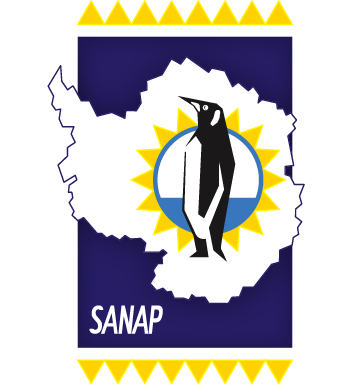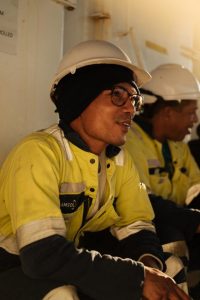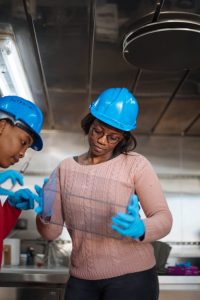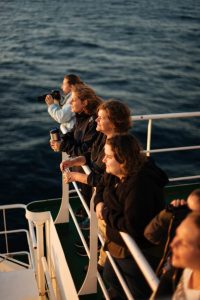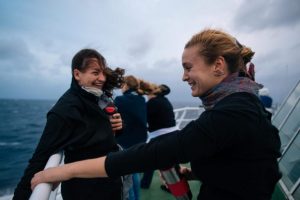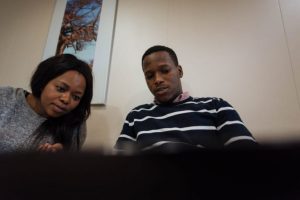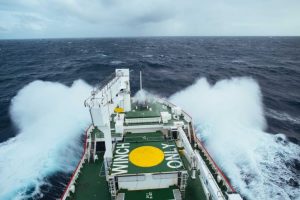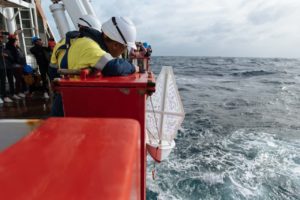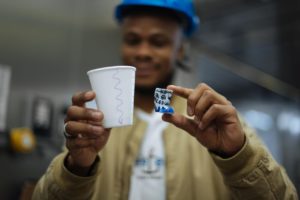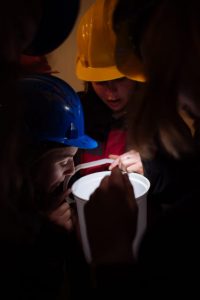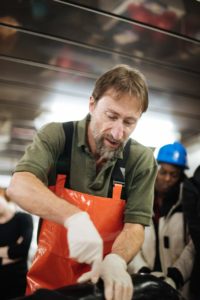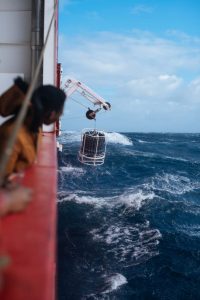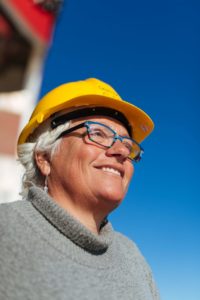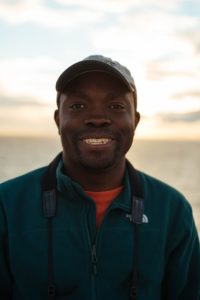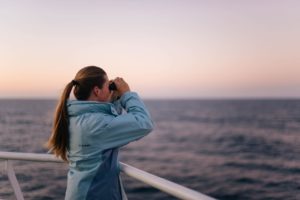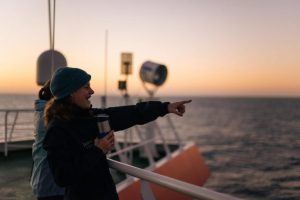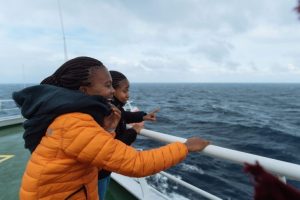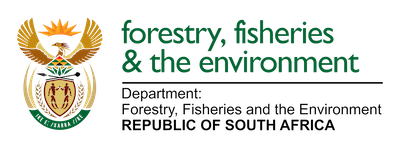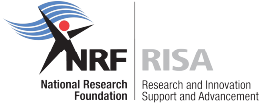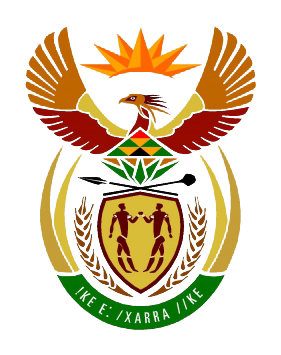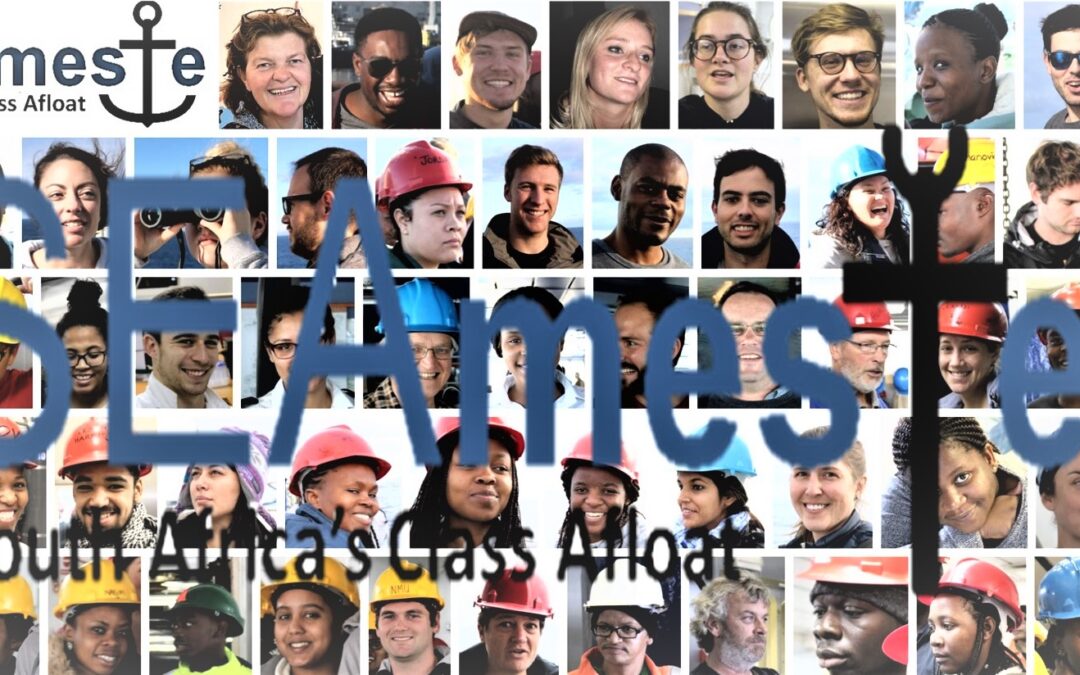
Sunday Science: SEAmester Programme
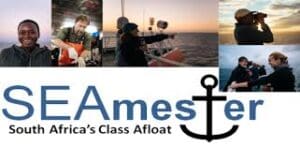
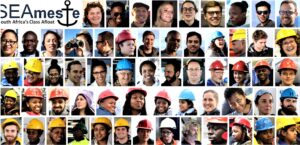 The SEAmester programme is a marine science winter school founded by Prof. Isabelle Ansorge of UCT which takes place at sea and provides the perfect platform for coupling both academic research and learning. Every year approximately 100 students, lecturers and scientists from over 15 different institutions (both local and international) come together for approximately 10 days at sea onboard the SA Agulhas II. SEAmester exposes postgraduate students to multiple different marine science disciplines through daily lectures, practicals, and regular interaction with many professionals conducting their research onboard South Africa’s state of the art research vessel.
The SEAmester programme is a marine science winter school founded by Prof. Isabelle Ansorge of UCT which takes place at sea and provides the perfect platform for coupling both academic research and learning. Every year approximately 100 students, lecturers and scientists from over 15 different institutions (both local and international) come together for approximately 10 days at sea onboard the SA Agulhas II. SEAmester exposes postgraduate students to multiple different marine science disciplines through daily lectures, practicals, and regular interaction with many professionals conducting their research onboard South Africa’s state of the art research vessel.
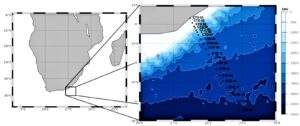 3 of the 4 previous SEAmester cruises have sampled the Agulhas System Climate Array (ASCA) transect. ASCA was an array of moorings deployed across the Agulhas Current from April 2016 to May 2018, in order to better understand the physical properties and dynamics of the Agulhas Current. The ASCA project extended the research undertaken along this array during the Agulhas Current Time-series project by continuing to sample the same 20 hydrographic stations. In-situ data in the Agulhas Current is very rare, and the collaborative, multi-disciplinary approach adopted during SEAmester has greatly improved our understanding of the complex Agulhas Current System. More information in paper by Morris et al., 2017 Above: Location of the stations sampled during SEAmester. Figure by James Maitland.
3 of the 4 previous SEAmester cruises have sampled the Agulhas System Climate Array (ASCA) transect. ASCA was an array of moorings deployed across the Agulhas Current from April 2016 to May 2018, in order to better understand the physical properties and dynamics of the Agulhas Current. The ASCA project extended the research undertaken along this array during the Agulhas Current Time-series project by continuing to sample the same 20 hydrographic stations. In-situ data in the Agulhas Current is very rare, and the collaborative, multi-disciplinary approach adopted during SEAmester has greatly improved our understanding of the complex Agulhas Current System. More information in paper by Morris et al., 2017 Above: Location of the stations sampled during SEAmester. Figure by James Maitland.
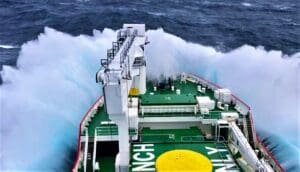 Left: Last year during SEAmester IV we experienced 3 consecutive cold fronts with resulting waves of up to 10m in size. This rough weather meant we were only able to sample 16 out of 20 of our planned stations. Photo credit: Thando Mazomba
Left: Last year during SEAmester IV we experienced 3 consecutive cold fronts with resulting waves of up to 10m in size. This rough weather meant we were only able to sample 16 out of 20 of our planned stations. Photo credit: Thando Mazomba
Sampling during SEAmester IV has included physical oceanography, biogeochemistry, phytoplankton, zooplankton, ichthyoplankton, microplastics, marine parasites, marine bacteria, marine seabirds and mammals, meteorology, benthic dredge sampling and more. SEAmester has provided an incredible opportunity for scientists from different disciples to work together and at the same time providing students with invaluable seagoing experience. The 5th SEAmester cruise which was due to take place this week has unfortunately been postponed until next year due to COVID-19.
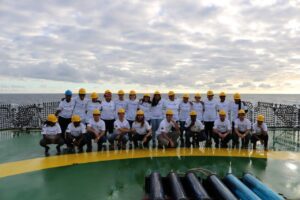 SEAmester has changed the lives of students! “Department of Science and Innovation’s 10-year Global Change Grand Challenge programme requires platforms to ‘attract young researchers and retain them by exciting their interest in aspects of global change; while developing their capacity and professional skills in the relevant fields of investigation.” – Isabelle Ansorge
SEAmester has changed the lives of students! “Department of Science and Innovation’s 10-year Global Change Grand Challenge programme requires platforms to ‘attract young researchers and retain them by exciting their interest in aspects of global change; while developing their capacity and professional skills in the relevant fields of investigation.” – Isabelle Ansorge
- “This programme has been the best experience in my life. It changed my outlook on how to gather knowledge, where to do research, how to think logically as well as to be creative and intuitive”
- “I have made so many new friends and build up my contacts for future endeavours”
- “SEAmester has made me realise that I have a passion for ocean-based research”
- “It has greatly influenced my general career goals and aims”
- “I really enjoyed meeting so many people from a diverse range of backgrounds and sciences”
- “I loved the way the content of SEAmester has helped me to link up all the theory that I have learnt over the years”
- “SEAmester was the best experience of my life”
- “I hope that SEAmester will continue in years so other students get the chance to have such an awesome experience”
- “I have been changed positively by this course – I am more motivated to tackle my studies”
- Just being together as a team – it didn’t matter what your background was”
- “It was a time of my life that I will never ever forget”
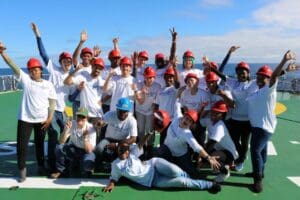
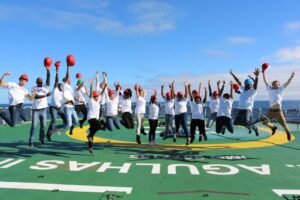 Text Supplied by Laura Braby – SAEON- Egagasini Node. Student Comments supplied by Isabelle Ansorge. Images available on Antarctic Legacy of South Africa Archive. More videos and images available at www.seamester.co.za
Text Supplied by Laura Braby – SAEON- Egagasini Node. Student Comments supplied by Isabelle Ansorge. Images available on Antarctic Legacy of South Africa Archive. More videos and images available at www.seamester.co.za
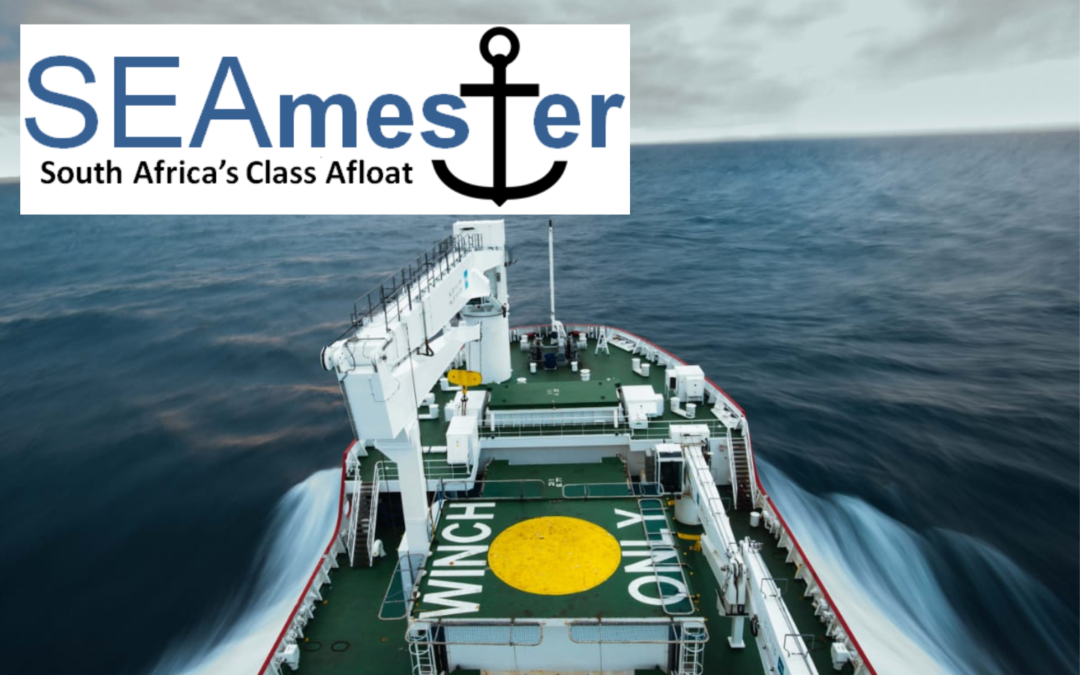
SEAmester applications for 2020 now open
CLOSING DATE extended to 13 MARCH 2020
SEAmester – South Africa’s Class Afloat aims to introduce marine science as an applied and cross-disciplinary field to students who have shown an affinity for core science disciplines. It will combine traditional class-room lectures with hands-on ship-based deck activities for a maximum of 46 students; while providing them with an opportunity to support specialist scientists in recognised marine research activities. Our research group comprises of over 30 oceanographic, fisheries, biogeochemical and biological experts, who jointly have trained over 600 Southern African students on-board a wide variety of international and local research vessels. read more at SEAmester website
How do I qualify?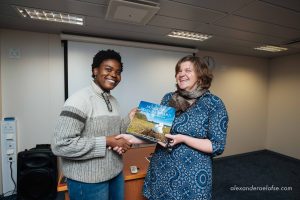
A maximum of 46 post-graduate (Honours/BTech, MSc/MTech, PhD and Interns) University and Technikon students will be selected nationwide. Applications will be accepted from currently registered post-graduate students with a background in marine or similar sciences. Past sea-going experience is not compulsory. Left: Rudzanie Silima best Student SEAmester 2019 with Prof Isabelle Ansorge of UCT
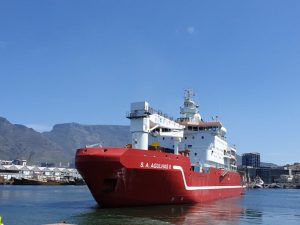 What ship will SEAmester take place on?
What ship will SEAmester take place on?
The new South African polar research vessel SA Agulhas II will be used for SEAmester V. The SA Agulhas II is a state-of-the-art icebreaker and is fully equipped for all marine research activities. To find out more go to http://www.sanap.ac.za/
What will it cost me?
Nothing. SEAmester is fully funded through the Departments of Science and Technology (DST) and Environmental Affairs (DEA). All board and lodging onboard the SA Agulhas II will be provided free of charge through SEAmester.
What research will SEAmester be involved in??
SEAmester will run in parallel to the scientific objectives of the Agulhas System Climate Array (ASCA) spearheaded by DSTs SAEON Egagasini node. ASCA is a multi-institutional, international collaboration and designed to provide the first long-term observations of Agulhas Current volume, heat and salt transport and its variability from seasonal to interannual timescales. ASCA’s objectives are to determine how the Agulhas Current and its role in the global conveyor belt varies over time. To find out more go to http://asca.dirisa.org
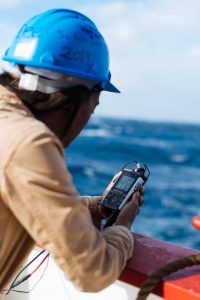
Listening for mammal sounds.
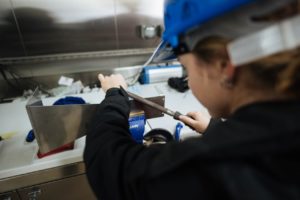
Working on their Aghulus bottle opener in the practical session.
What will be expected from me?
You will be expected to choose one of two module steams – either Tools of the Trade or Oceans in a Changing World (see overleaf). Learning will comprise of daily class-room lectures, daily assignments and deck work – running in parallel to the ASCA programme. Students from both streams will also provide research support to specialist scientists and obtain daily hands-on deck training, data collection, sampling and data analysis. Each student will gain experience working with the full suite of oceanographic, atmospheric and biological ship-based instrumentation such as CTD, underway measurements and autonomous devices such as Argo, SVP drifters as well as gain experience on all biological net tows. Training on data analysis following each deployment will be given, as well as technical and electronic experience in calibrating, assembling and modifying each instrument. In addition, each student will work on a specific scientific mini-project related to their area of interest and the scientific research underway.
What are the tentative dates for SEAmester?
SEAmester will depart on the 13th July returning to Cape Town on the 24th July 2020. Travel arrangements and costs will be made through the SEAmester programme for all students residing outside of the Western Cape. PLEASE NOTE: Applicants to be aware that the cruise dates may be subject to change by a few days.
What travel documentation must I have?
SEAmester will be working outside of South African waters and therefore all participants are requested to have a valid passport. SAMSA approved medicals will be required and costs incurred will be covered by the SEAmester programme. Students with study visas need to ensure that their visas have not expired.
Is there reading material – See the attached files (SANCOR site) for any additional reading material, or contact Isabelle.Ansorge@uct.ac.za
See SEAmester 2019 videos on SEAmester website as well as the previous years
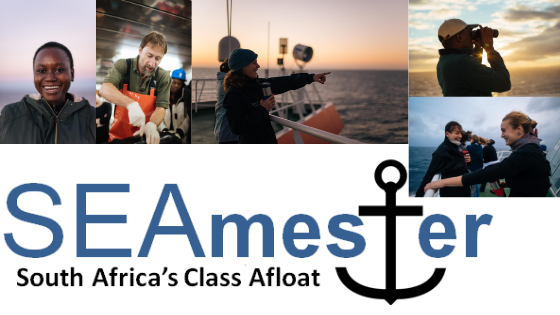
SEAmester IV – photos and more
On the 1st of July 2019, 41 students from various universities across South Africa have set sail from the Port of Cape Town, onboard the S.A. Aghulus II, as part of the annual SEAmester course run by Prof Isabelle Ansorge from the Department of Oceanography, University of Cape Town. Assisting her onboard is Tahlia Henry, programme coordinator; watch this interview with Tahlia just before departure. Students who are in the marine field of study and who make it through the hundreds of applications get the fantastic opportunity to participate in this 11-day South African class afloat. The cruise travels up the coast to Port Elizabeth where the vessel turns into the deeper oceans in order to travel along the ASCA line. The line plots its course at certain intervals, where CTD (conductivity, temperature and depth) tests are done.
- Crew member, Bradley, standing by during a science station.
- Student assembling her design during a workshop.
- Morning whale watching before breakfast.
- A slightly windy morning.
- Students hard at work on their projects.
- Charging forward in the rough conditions.
While students are onboard the days are filled with a selection of lectures and practicals, run by leaders in the field of marine science. The practicals give students some hands-on experience within their field of interest, for example students get to partake in CTD observations where the CTD is lowered to different depths at different points along the cruise to measure depth, salinity and temperature. These observations are done in order to gain a better understanding of the Aghulus current. The South African Weather Service also has a meteorological technician/forecaster onboard, demonstrating the release of a weather balloon, while informing students on the data gathered from the radiosonde (box attached to the balloon gather certain data) – view this video to learn more about weather observations from the S.A. Agulhas II. Other practicals onboard include; dissections on marine mammals, parasitology studies, seafloor sediments studies, mammal observations and micro plastic sampling.
- The mini boat being deployed – the miniboat has GPS tracking and it provides data on the movements of the currents.
- Working on their Aghulus bottle opener in the practical session.
- What happens to a polystyrene cup if it’s sent down to 4000m.
- Looking to see what was found after nets have been retrieved – the science continues at all hours of the day.
- Listening for mammal sounds.
- Dr Greg Hofmeyr, Port Elizabeth Museum working on Marine Mammals, illustrating a seal dissection.
- CTD returning.
- Dr Delphine Thibault – Associate Professor in Biological Oceanography, specialising in the study of gelatinous zooplankton for the past 20 years.
- Dr Fannie Shabangu – PhD in Bioacoustics. His research background is in the application of the acoustic technology to study marine organisms.
Surrounded by the blue ocean looking left, right, backwards and forwards reminds one of the vastness of the ocean. Sunrises and sunsets are most definitely a highlight for students as they are able to watch the sun break through the horizon from the monkey deck.
- Morning whale watching before breakfast.
The cruise has thus far experienced some great weather in the first few days, but we did end up face to face with a cold front. It was a slightly bumpy ride to say the least as the vessel had to navigate its way through 9m swells and 40 knot winds.
The vessel is expected to back in the Port of Cape Town by morning, 11 July 2019.
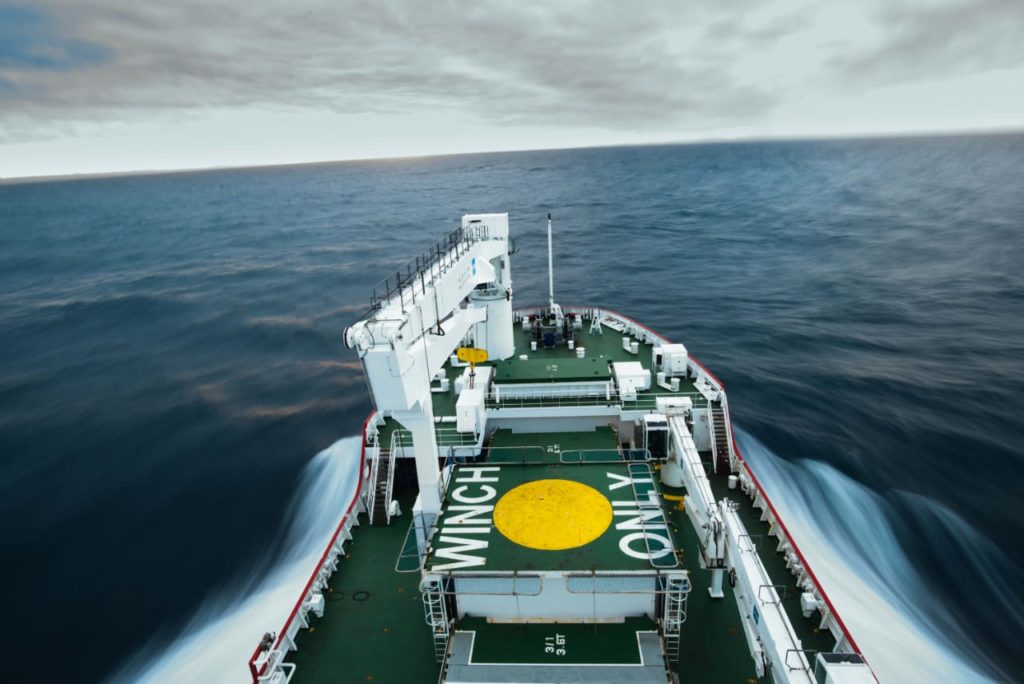
S.A. Ahulhas II moving through calm waters. Photo Credit: Alex Oelofse.
All photo supplied by the photographer onboard the vessel: Alex Oelofse.
Author: Alex Oelofse, Photographer onboard the vessel. Edited by: Anché Louw, 09 July 2019.
Departure: SA’s Class Afloat – SEAmester IV 2019
The 4th SEAmester cruise departed from the port of Cape Town on the 1st of July 2019.
This year’s class consists of 41 students in total, including postgraduate students from all over South Africa and a few international students.
During this 11 day cruise along the coast of South Africa, on the S.A. Agulhas II, students will learn all about marine science through theoretical classroom learning and applying this knowledge through ship-based and hands-on research. Find out more about SEAmester here.
We would like to wish all the students and lecturers onboard the vessel another successful programme.
VIDEO: Meet the programme coordinator, Tahlia Henry.
Note: SEAmester is a Department of Science and Technology/National Research Foundation funded SANAP (South African National Antarctic Programme) project.
Anché Louw, Antarctic Legacy of South Africa, 03 July 2019
